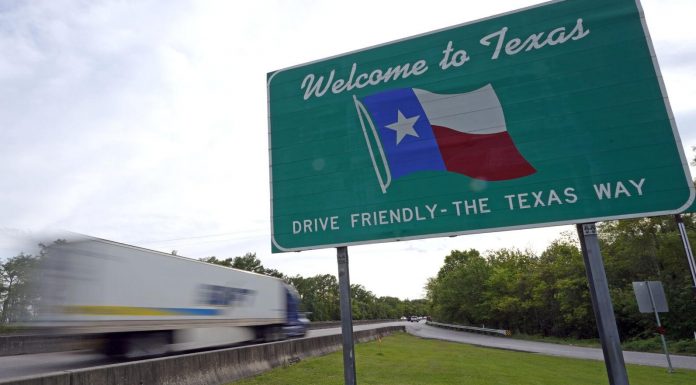(Robert Davis, The Center Square) Texas welcomed new residents of all ages and incomes in the years leading up to the COVID-19 pandemic, according to recent Internal Revenue Service data.
The data was collected for tax years 2018 and 2019, meaning it represents the tax filings from 2017 and 2018.
The data reflects migratory taxpayers who paid taxes in a different state or county over the same timeframe.
Between tax years 2018 and 2019, the Lone Star State added a net of 114,194 new taxpayers and dependents to the state.
This total accounted for over $4 billion in net adjusted gross income.
Over 72,000 Californians departed the west coast for Texas, according to the data.
The IRS data adds to a trend of Texas increasingly becoming a destination spot for businesses and property owners.
Back in September, Gov. Greg Abbott’s Office of Economic Development reported a “tremendous increase” in corporate relocations to the state since the pandemic began.
Late last year, software company Oracle finalized its move to Austin. It wasn’t long afterward that Tesla announced it was going to build a gigafactory in the state. Apple followed with plans to build a campus in Austin, too.
The U.S. Census Bureau also reported that Texas has grown much faster than California over the last decade. Even though California still ranks as the nation’s most populous state, Texas added nearly twice as many residents as the Golden State between 2010 and 2019.
Texas Public Policy Foundation Vice President Chuck DeVore wrote in an op-ed for Fox News that the phenomenon is a sign that lower taxes actually encourage growth.
“If California’s anti-jobs policies, its high taxes, capricious regulatory enforcement, and blackout-inducing energy policy can chase out the company that launched Silicon Valley, is any business, large or small, immune from pressure to move?” he wrote.
“Unless a company must directly serve the California market, such as a fast-food chain, the answer is a resounding ‘No!’”…Original Source…

